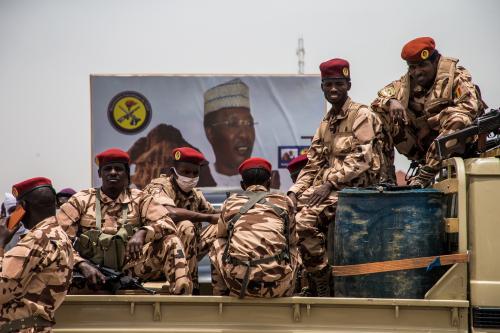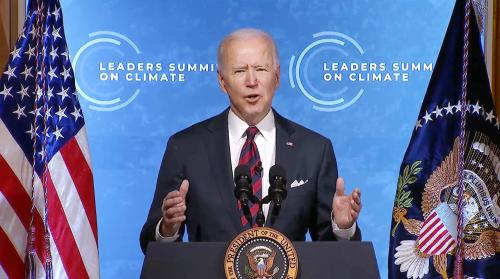Mozambique’s LNG project indefinitely suspended; OPEC maintains global oil demand projections
Following insurgent attacks in Mozambique in January and March, this week French oil giant Total has indefinitely suspended its $20 billion liquefied natural gas (LNG) project in the country’s northern Cabo Delgado province. Stalled since January, Total had resumed work on the project in March. However, a resurgence of the violent Islamic State-linked militias reignited the security threat, causing millions of dollars of property damage. Given the challenges to the LNG project, the company suspended its contract under force majeure—a “provision that allows parties to suspend or end contracts because of events that are beyond their control, such as wars or natural disasters.” By suspending their contractual obligations to gas buyers, construction companies, lenders, and the Mozambican government, Total hopes to protect the project in the long term and resume once the security conflict is resolved. Before this pause, Mozambique was projected to collect $100 billion from the gas project over 25 years. Now the country is facing a downgraded economic growth forecast.
In related news, the Organization of the Petroleum Exporting Countries (OPEC) announced Monday that it maintains its global oil demand forecast for 2021 despite the surging COVID-19 outbreaks in India, Brazil, and Japan. OPEC forecasts a rise in global oil demand by 70,000 barrels per day (bpd) to approximately 6 million bpd. However, oil prices dipped on Monday due to fears that the sharp rise in COVID-19 cases in India will dampen petroleum demand in the world’s third-largest oil importer.
Chad’s transitional military council meets resistance
This week, Chad’s transitional military council named Albert Pahimi Padackev—the runner-up in this month’s election—prime minister of the transitional government. The announcement was met with immediate dismissal by opposition leaders, who argue that the council’s recent takeover after the death of President Idriss Déby last week amounted to a coup. In fact, on Tuesday, thousands of people took to the streets in Chad to protest the country’s recent political developments, criticizing the transitional military council and calling for immediate civilian rule. The council subsequently banned protests, citing a period of mourning for the former president, and violent confrontations between security forces and the protesters ensued. On Tuesday, 27 people were injured and five died in the crackdown, and the prominent opposition leaders have been confined to their homes.
Meanwhile, the same day, Déby’s son, Mahamat Idriss Déby, who has taken over as president, gave an address to the nation calling for partners to provide immediate aid to stabilize both the economy and political environment.
Former President Déby’s death came last week after he sustained injuries while leading troops against rebel group Front for Change and Concord in Chad (FACT). Since the military council took over, FACT and the country’s political opposition have resisted the move, calling the takeover a coup, but have said they are open to negotiations: FACT spokesman Kingabe Ogouzeimi de Tapol recently stated, “FACT is ready to observe a ceasefire for a political settlement that respects the independence and sovereignty of Chad and does not endorse a coup d’etat.” Meanwhile, the military council has announced it will not negotiate with the group: On Sunday, spokesman for the military council, Azem Bermandoa Agouna, stated, “They are rebels, which is why we are bombing them. We are waging war, that’s all.”
For more on Idriss Deby’s 30-year tenure as Chad’s president, listen to last Thursday’s episode of The Current podcast. For more on the long-term security implications of the events in Chad for the wider region, see Alexandre Marc’s commentary, “The death of Chadian President Idris Déby Itno threatens stability in the region.”
Please also join Brookings on May 7 for a virtual expert discussion on the latest developments in Chad, as well as the regional implications and deeper policy dilemmas of counterterrorism, stabilization, and good governance.
African, US, and other global leaders have taken major steps to address climate change
On April 22-23, U.S. President Joe Biden hosted 40 world leaders at the Leaders Summit on Climate, including those of Nigeria, Gabon, the Democratic Republic of the Congo, Kenya, and South Africa. At the summit, the U.S. agreed to reduce carbon emissions by 50 percent by 2030 and urged other countries across the globe to step up as well. Notably, at the summit, the Biden administration announced the launch of a Global Climate Ambition Initiative in which the U.S. will support developing countries in establishing strategies and policies to fight against climate change and mobilizing financing to drive the net-zero transitions and adaptations to climate change—all initiatives that could potentially help Africa.
Climate change is a global issue, of which the world’s poor often bear the heaviest burden. Moreover, various climate-induced crises in Africa are exacerbating other risks in the region. The impacts of climate change are spilling over and adding to the existing instability in regions by increasing food insecurity, conflict, and displacement, according to a report released this week by the Africa Center for Strategic Studies. Specifically, the reports states, “by adding pressure to already strained environmental and economic systems, climate change exacerbates resource competition, intercommunal grievances, state fragility, and other vulnerabilities.” For example, according to the United Nations, roughly 80 percent of the Sahel’s farmland has degraded due to climate change, adding to the existing herder-farmer conflicts competing decreasing amounts of grazing land.
In related news, on Tuesday, April 27, the U.S. House of Representative’s Foreign Affairs Committee held a hearing on the effects of climate change in Africa, wherein a number of expert witnesses highlighted that immediate attention is needed to address the issues. Witnesses discussed pressing climate issues such as the shrinking of Lake Chad, the impact of climate on stability, potential drops in coffee production in Ethiopia, and a way forward for Africa. To address the problem, they also recommended investing in climate-smart technology and grid resilience in countries like Nigeria and Ghana, among other initiatives.







Commentary
Africa in the news: Mozambique, Chad, and climate change updates
May 1, 2021